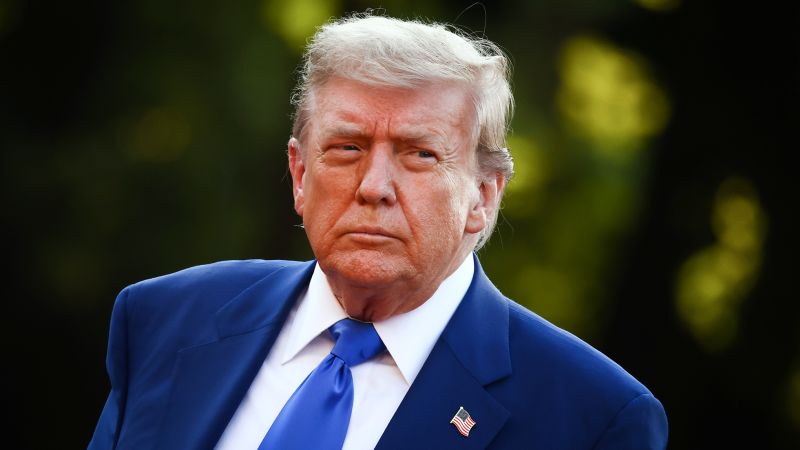NATO leaders convening Wednesdayin the Netherlandswere prepared to offer President Donald Trump a major win by boosting their defense spending targets.
But comments he made while flying to the conference were raising fresh concerns about his commitment to the alliance’s core principal of collective defense.
The split dynamic — where leaders tailored their gathering to appeal to Trump, even as he questions the core provision of membership — made for a charged atmosphere as the conference was getting underway at The Hague.
Trump, who spent the night at a Dutch royal palace after flying from Washington, was set to attend the summit’s sole plenary session before meeting on the sidelines withUkraine’s President Volodymyr Zelenskyand holding a press conference.
He’ll spend fewer than 24 hours in the Netherlands, an intentionally truncated visit that NATO leaders designed specially to keep Trump’s attention and ensure he didn’t have time to blow up the intended display of unity.
The central outcome of the summit — a pledge by members to boost defense spending to 5% of GDP in a decade, up from the current target of 2% — is exactly what Trump has been demanding over the past several years.
The final communiqué in which the spending target will be affirmed will be dramatically shortened, omitting any controversial language that might spark resistance from the United States.
And while Ukraine and its president are still on the agenda, the country’s war with Russia will take a far less prominent place than in NATO summits past, a sign of the differences emerging between Europe and Trump over how to resolve the conflict.
NATO chief Mark Rutte, whose relationship with Trump extends back to his years as Dutch prime minister, elected to place the spending targets at the center of the summit and made sure to credit Trump for making it happen in a private message that Trump later posted on social media.
“You will achieve something NO American president in decades could get done. Europe is going to pay in a BIG way, as they should, and it will be your win,” Rutte wrote, before wishing the US president a safe journey to the Netherlands.
The fawning tone prompted some private eyebrow raising among European officials, but Rutte denied any discomfort when a reporter asked Wednesday whether the episode wasn’t a little embarrassing.
“Absolutely not,” he said. “What is in that text message is a statement of fact and I’m totally fine that he shared.”
As it turned out, Trump didn’t actually have to be at the NATO summit in order to raise fresh concerns about his commitment to the alliance, which he’s not been shy about criticizing in the past.
Speaking to reporters aboard Air Force One, Trump stopped well short of offering a full-throated endorsement of thealliance’s cornerstone Article 5 pledgeof collective defense.
“It depends on your definition. There are numerous definitions of Article 5,” Trump said when asked about his commitment to the pledge, before adding: ”I’m committed to being their friends and I’m committed to helping them.”
It was not quite the show of support many European leaders had hoped for, though few officials voiced surprise at Trump’s comments as the summit was getting underway.
For his part, Rutte said he was unconcerned about Trump’s NATO commitment.
“For me there is absolute clarity that the United States is totally committed to NATO, totally committed to Article 5, and yes, there is also an expectation — that will be fulfilled today — that the Canadians and Europeans will speed up their spending,” he said.
